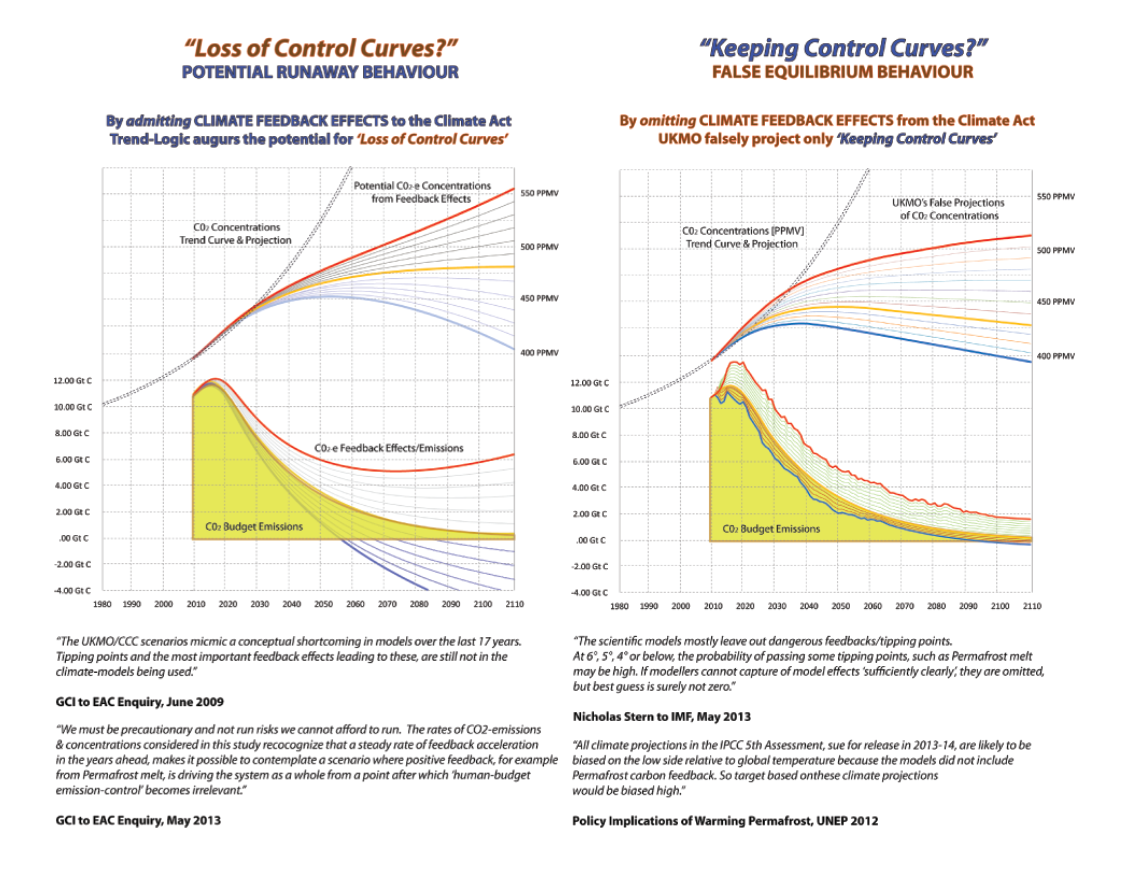Contraction & Convergence, 'C&C'
in the UK Climate Act & the Carbon Budget Analysis Tool (CBAT)
Click logo to return to 'general links-page'
Counts all visits to all pages of the GCI website since ~2022.
Associated links
Logical Beginnings
CBAT Appreciation
"Measure what is measurable & make measurable what is not so" (Galileo Galilei).
Full calculating model introduced in 2013, CBAT included C&C in Domain 2 (of 4) while Domain 1 projected the acceleration-potential
in the rise of atmospheric concentrations & global Temperature that we now see inceasingly due to elevated Climate Sensitivity levels.
**********************************
The functionality of the four domains of 'CBAT' is the principle that Well Tempering commutes. Usually applied in musical tuning,
Well Tempering comes from the derivation of 'Phi' a universal constant, that makes 'C&C' 'The Well Tempered Climate Accord'.
CBAT Domain 1 deals with 'carbon-budget-emissions' CO2 concentrations & 'feedback-effects'.
It dynamically examines & compares potential for any rapidly inter-acting-feedback-effects arising (RIAFE).
Continuing this, domains 2, 3 & 4 deal with analysis & strategy. They automatically pick up the user-selected carbon-budget emissions & feedback effects user-selected in Domain one.
In other words, CBAT is a non-chaotic method of facing the negative/positive-feedback-arrays of both known, the unknown and the unknown-unknowns in the rapid & increasingly dangerous climate dynamics that are now obviously developing.Considering these dangers, the apex-need is to organise & act in a non-random & precautionary way.
Tough but true, a plan is needed, as not to have a plan - let-alone a deal - deepens the dynamics of climate chaos.
**********************************
Click logo to go to 'CBAT-start page' (Domain One)
On opening, the default setting is the contraction rate of global emissions - the global 'carbon-budget' - in the UK Climate Act.It is 'cognitive-mapping', so the CBAT-user can increase or decrease this 'carbon-budget' in Domain One.
This sets Domains 2, 3, & 4 with feedback risk-potential in arrays for the consequential change-rates arising: -
- 'Domain One' - 'Contraction & Concentrations', with response arrays with and without 'climate feedbacks' & 'climate-effects' (temperature, sea level rise & ocean acidifcation)
- 'Domain Two' - 'Contraction and Convergence' where regional shares converge on the international per capita average arising for the global carbon budget chosen
- 'Domain Three' - 'Contraction and Conversion' exploring the rates at which fossil fuel consumption contracts & needs to be replaced with renewable sources at rates arising.
- 'Domain Four' - 'Climate Damages and Growth' exploring the rate of the climate-damage curves arising from different rates of carbon contraction; the core of this is the bigger the carbon budget, the faster climate-damages overwhelm GDP growth.
"Simple, robust, C&C insight into the problem of climate mitigation bears the hallmark of true genius."
Andrew Dlugolecki at COP-6 The Hague 2000.
- A description of CBAT is here;
- A technical note is here;
- General appreciation is here
*************************************************************************The Carbon Budget Analysis Tool (CBAT) was developed with support from Mayer Hillman & Jelle Hielkema.
Their logos (the boar & the decagon) appear on the CBAT user-interface.
